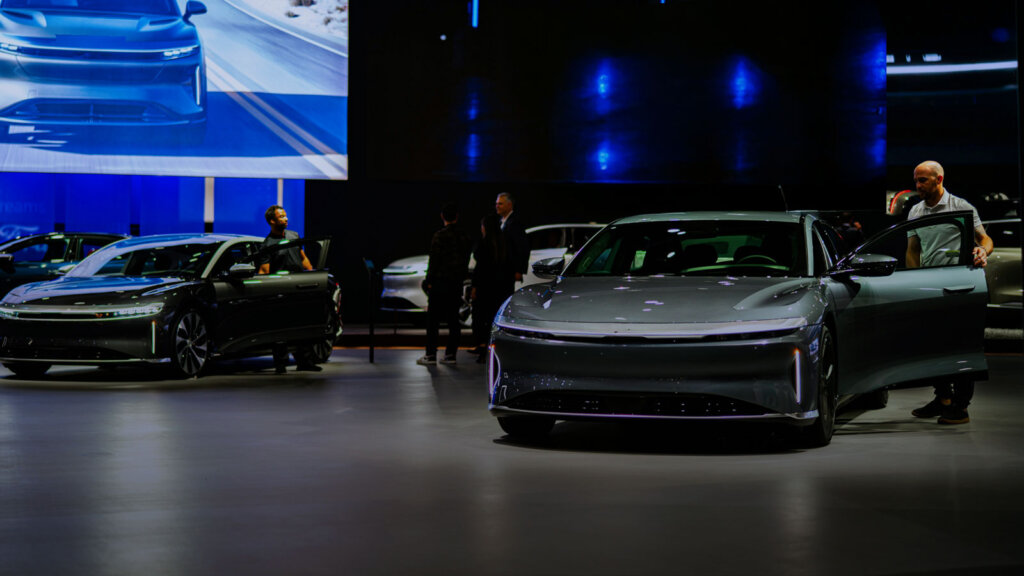For most verticals, telling a brand story can be straightforward: outline your product’s features and benefits and get it in front of the right audience. An oversimplification, perhaps, but those are the core ingredients – and they stand true for just about any company in the vertical of any size.
The Automotive vertical, however, breaks this formula in key ways, and if you’re in that industry you know it. Sales efforts are divided into three distinct tiers, each with their own budgets, goals, and geographic footprint. Their marketing strategies are very different – and, crucially, they’ve taken even more divergent paths with the world’s shift to digital.
If you’re looking for a primer on how to best service this key part of your business playbook as the ad industry evolves, Infillion can help.
Understanding Tier 1 vs. Tier 2 vs. Tier 3
Broadly, the difference between the tiers is the distinction between national, regional, and local. If you’re in the industry or already work with auto clients, you know this, but here it is just for a refresh.
Tier 1 accounts for national advertising on behalf of the auto brands themselves. You’ve likely seen these ads before: they’re often focused on the feelings associated with owning the advertising brand’s vehicle. These are commercials that show men in expensive suits racing along the Pacific Coast Highway with a narration that talks about big philosophical topics. It’s not a sedan – it’s freedom. It’s independence. These ads seek to establish pure vibes, and are typically focused on broad awareness.
Tier 2 and 3, on the other hand, are where the rubber very literally meets the road. These dealerships are where you can actually speak with a seller and actually purchase a car. Their scope is different – tier 2 focuses on a region (e.g.: “Tri-State”) whereas tier 3 is hyper-local – but their goals are the same: foot traffic and sales.
Succinctly: tier 1 is dominated by top- and mid-funnel strategy. Tiers 2 and 3 should be heavily focused on bottom-funnel activations. For tiers 2 and 3, we specifically recommend focusing on the following strategies:
Strategy #1: A Focus on Foot Traffic
Digital shopping is great for convenience. But the true strength of tier 2 and 3 auto dealers is in the in-person connection. The firm handshake, the local service, things that an internet browser cannot accomplish. Your goal as an advertiser, then, is to drive foot traffic.
To best service tier 2 and 3, this is your primary objective. How you accomplish this is subject to the tools you have at hand. At Infillion, we use location-based targeting. This allows us to geolocate users to their nearest dealership. In fact, we can even track if one of our ads leads to in-person traffic, using our proprietary Arrival technology..
In addition to driving more traffic to dealerships, this also gives tier 2 and 3 auto clients the comfort of knowing their ads worked. You can see a case study of our foot traffic efforts here.
Strategy #2: Transparency, Control, Efficiency
By virtue of their regional and local sizes, tier 2 and 3 auto advertisers will never have the budget that tier 1 does. That means that every single dollar needs to be used to its maximum potential. There is simply no room for wasted impressions or inefficient spending.
At Infillion, we account for this with MediaMath. MediaMath is our AI-driven programmatic buying platform that prioritizes transparency and efficiency. Auto dealers can track every penny of their programmatic spend. They will always know where their money is going. Even better: MediaMath can use an auto dealer’s typical ad spend and make it better. No additional fees, just premium performance at a reasonable budget.
Strategy #3: Create Room for Growth
Should your tier 2 and tier 3 auto sellers grow large enough that programmatic advertising alone isn’t cutting it, an ideal solution is to create pathways for growth. That is – additional ad products at higher budgets. Getting a dealer’s message out on a bigger scale with more powerful advertising can be a fantastic tool for driving additional foot traffic.
At Infillion, we offer rich media, opt-in attention advertising, and even stadium- and arena-wide placements. Offering options like this creates room for these clients to grow and evolve their business.
By driving foot traffic, creating control and efficiency, and allowing for future growth, you’ll be establishing an effective content strategy perfectly tailored to the needs of this highly specific part of the auto vertical. Whether you’re an auto company yourself, a regional or local agency, or a reseller – Infillion is here to be your trusted partner.
Not familiar with Infillion? Let’s change that. Reach out today and we’ll talk.

